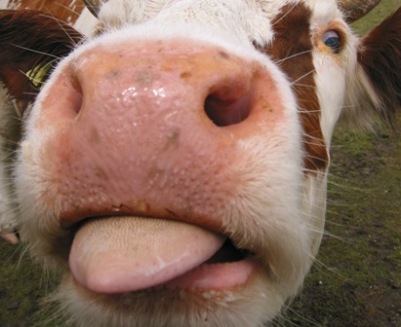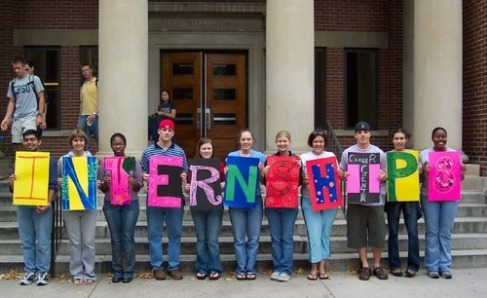It is now time to move on from Lesson I, which dealt with the UN Intern Conversation. By now, you should have it mastered after what has most likely been several weeks of highly intensive practice. In fact, you may not be aware of the exact number, but I would estimate it has probably come in handy roughly 100 to 500 times in the past three weeks.
“Lesson II: The Swiss Kiss” is specially designed to guide the North American newcomer to Geneva. Europeans, feel free to read along; In fact, it may help you to understand the shy, awkward movements of North Americans when you lean in for what, to you, seems a perfectly natural three kiss greeting.
The Swiss kiss three times: left, right, left (or is it right, left, right….) in a rapid rush of flesh hitting flesh, stubble against acne, hard cheekbone on dimpled fat, smooth skin on soft wrinkled bags. Aromas of garlic, parmesan, strawberry chewing gum and cigarette smoke flirt with each other in the small passage of air between two faces. Potential for missing makes the endeavor thrilling or terrifying.
Being a North American, I am certainly no expert on the Swiss Kiss and have little authority whatsoever to give instruction on the intricacies of the tradition. This being said however, my identity as a Canadian means I can sympathize with the plight of the non-European who, when confronted for the first time with the challenging task of rapid neck rotation, lip puckering, and precise head placement, is left feeling overwhelmed and out of touch. As North Americans, we feel at home with zero-contact greetings and farewells , including head tilts, smiles, shoulder shrugs and hand waves. Mini hugs are common among girls, but kissing is reserved for romantic evenings watching the sunset, and other such intimate occasions.
It’s not that North Americans are incapable of mastering the skills needed to perfect the Swiss Kiss. But the situation is made particularly complicated by the fact that a large portion of the Geneva population is non-Swiss and thus the Swiss Kiss is made frighteningly unpredictable. For instance, what do you do when you meet a French person (land of two kisses) who has been living in Switzerland (land of three kisses) for several months? Or an Italian (land of right, left, right. Or is it left, right, left and the Swiss is right, left, right? Or, actually, is it just two?). Or a German (land of one kiss… or two)? Ad almost infinitum.
Although at first it may seem counterintuitive, the most challenging situation is actually when one runs into a fellow North American who has been in Switzerland for longer than two weeks but less than a year. This individual will often be suffering from what is known as a “greeting-identity-crisis,” or an intense internal battle regarding his affiliations with meager head nods versus his newer Swiss sensibilities. When in the acute phase, this condition can cause erratic and, at times, dangerously illogical greeting behaviours. When approaching a suspected sufferer, move with caution, eyes on alert, head ready, poised for quick action and change of course. To determine this individual’s chosen method of greeting, you should be aware of the following potential indicators: slight head shifts (to right or left); fear in the eyes; downward glances or abrupt disruption of eye contact; leg twitches or movement of the feet; elevation of the shoulders, which may be a sign of an oncoming hugging motion; head tilts; cheek elongation; smile motions; lip biting, a sure sign that the Swiss greeting has been rejected – don’t take it personally; and complete withdrawal from the situation which can take on several forms that will not be addressed in the current memo.
The complications surrounding the Swiss Kiss are compounded by the fact that not all situations call for its usage.
Here are a couple definite dos and don’ts: (note, this list should contain about 50 to 100 more descriptions of the intricate rules of usage).
a) Do not employ the Swiss Kiss when you see someone on a regular basis in a regular place. For example, do not go into work each day expecting to kiss all your colleagues. This might illicit glares or create underlying feelings of annoyance. Furthermore, you could develop a form of mouth tendinitis from over straining the delicate muscles on the sides of the lips. However, when you meet regular people in a non-regular place (dinner party, market, airport, small water vessel, etc.), the Kiss is considered polite and you will be frowned on if you screw it up.
b) Do not engage in kissing when you meet a group of purely North Americans and you are all new in town. The Kiss would just be trying way too hard. However, if you meet a group of exclusively North Americans some of whom have been in Switzerland for a considerable period, the Kiss is a means of recognizing their increasing native-hood and acknowledging their authority as a “quasi-local,” at least in relation to yourself. In this situation, the Kiss is highly preferred and will help set you apart from other less-educated newbies.
I want to conclude by saying, YOU SHOULD NOT FEEL AFRAID OF THE SWISS KISS. In fact, in that rare instance when you are with a cheek pecking pro, the experience can actually be uplifting and confidence boosting. Also, fear of the Kiss has a smell like dog poop on a shoe, and nobody wants to smell like dog poop. So breathe, smile, and emulate the actions of the best kissers: precise, sharp movements with an “I don’t apologize, ever” sort of attitude. Quick, easy, over, just like that.
*Note: let me clarify for those of you “double dummy North Americans” who are currently not in Europe and may be confused: this post is not about kissing kissing.


